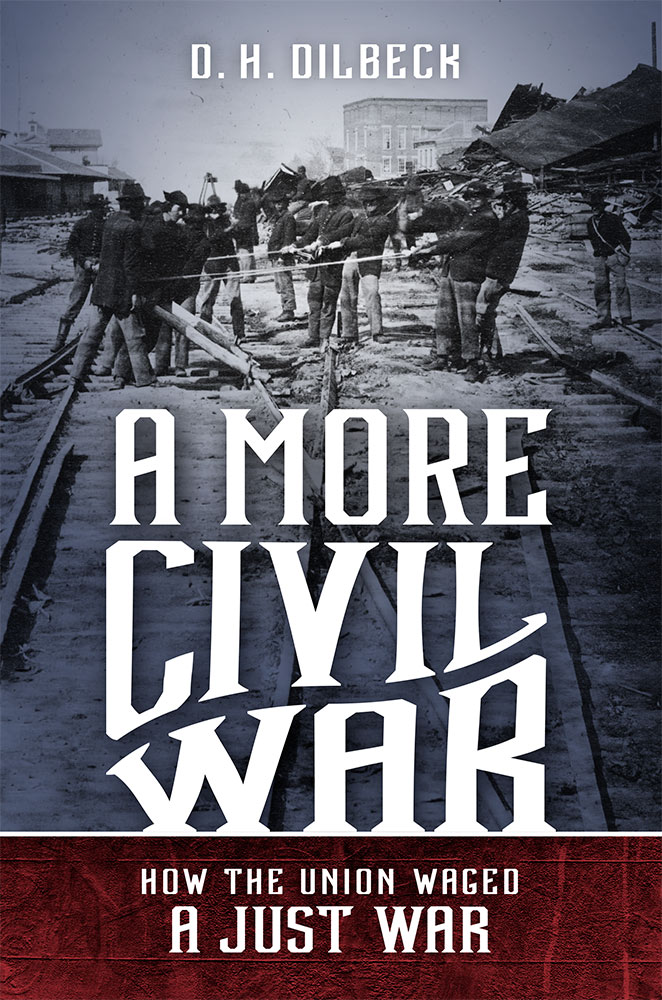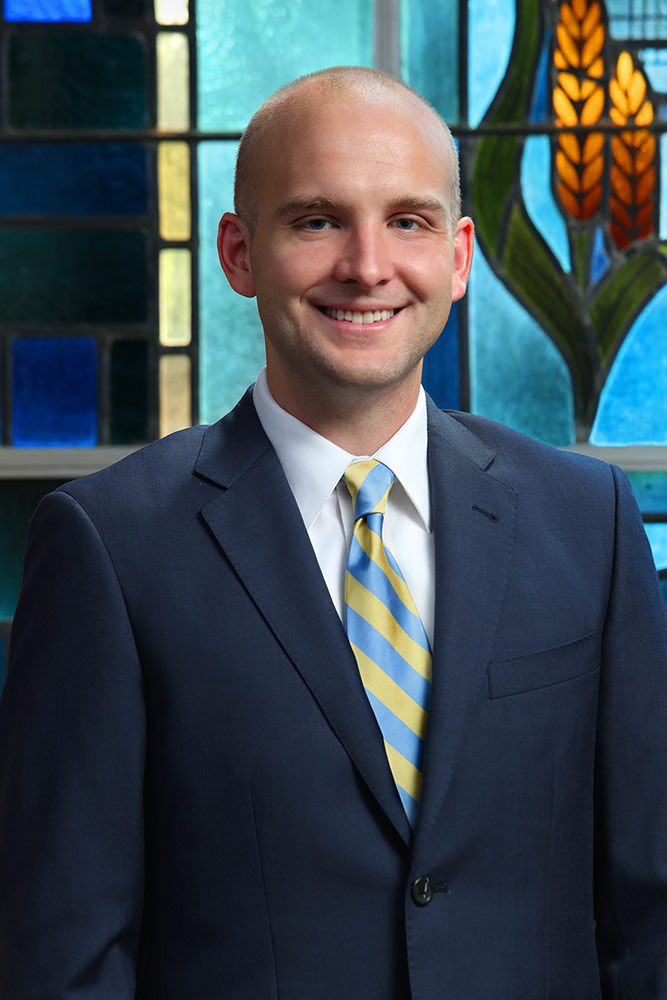OBU Professor D.H. Dilbeck Authors “A More Civil War”
October 28, 2016
Dr. D.H. Dilbeck, assistant professor of history at Oklahoma Baptist University, has authored a new book titled, “A More Civil War: How the Union Waged a Just War.” The book released Oct. 24 and is available on amazon.com and at other major booksellers.
Dilbeck will host a book signing at the Full Circle Bookstore in Oklahoma City. The event will take place Thursday, Nov. 3, from 6:30 to 8:30 p.m. Full Circle is located in 50 Penn Place at 1900 Northwest Expressway.
University of North Carolina Press, publishers of the book, offer a description of the work on uncpress.unc.edu. “In this innovative book, D. H. Dilbeck reveals how the Union sought to wage a just war against the Confederacy. He shows that northerners fought according to a distinct ‘moral vision of war,’ an array of ideas about the nature of a truly just and humane military effort. Dilbeck tells how Union commanders crafted rules of conduct to ensure their soldiers defeated the Confederacy as swiftly as possible while also limiting the total destruction unleashed by the fighting. Dilbeck explores how Union soldiers abided by official just-war policies as they battled guerrillas, occupied cities, retaliated against enemy soldiers, and came into contact with Confederate civilians.”
Since his graduate days at OBU, Dilbeck has been fascinated with the question, “What is a just war?”
“It’s a question that’s certainly still relevant in our modern age of drone strikes and cyber warfare,” he said. “I was curious to know how Civil War Americans confronted that same question as they embarked on the most destructive war in America’s history, and found themselves fighting their fellow countrymen.”
“As you might guess, philosophers, theologians and lawyers have argued for centuries about what it means to wage a ‘just war.’ My goal in this book isn’t so much to resolve that debate and offer a definitive definition of a ‘just war,’” Dilbeck said. “Instead, I wanted to understand how exactly Civil War Americans defined—and tried to wage—a just war. The main characters in the story I tell would say that a just war, above all, was a vigorous military effort that tried to achieve victory as quickly as possible—because the sooner you end a war, the less total death and devastation can be unleashed by the war.”
Dilbeck’s book began as his doctoral dissertation at the University of Virginia. Most of the research for the book was done in archives at the Library of Congress, the U.S. Military History Institute in Carlisle, Pennsylvania, and at the Huntington Library in San Marino, California. Most of the book was written at the Huntington Library and at Dilbeck’s kitchen table in Charlottesville, Virginia.
The main character of Dilbeck’s book is a man named Francis Lieber, a Berlin-born expert in the “laws of war” who eventually drafted the Union army’s official code of conduct, a set of 157 short rules that tried to define for soldiers and officers how to wage a just war.
“Lieber was an expert in this field of study, but what drew me to him was the personal turmoil he endured during the Civil War,” Dilbeck said. “He had three sons. One fought and died for the Confederacy. The other two fought for the Union, and one of them was horribly wounded. For that reason, Lieber had an intense personal stake in this effort to ensure the Union waged a just war and limited the conflict’s death and destruction.”
“The Lieber code certainly still continues to shape, in a distant way, how the United States defines just conduct in war,” Dilbeck continued. “The latest military codes of conduct bear a striking resemblance to the Lieber code, particularly its articles on the treatment of civilians,. More important than that, though, I think the biggest lesson to learn from the Union’s effort to wage a just war is simply this: Even the most well-intentioned attempts to wage a just war usually go awry. Ultimately, no war is perfectly just in its prosecution. So in warfare, as in so many things, humility is key—a humble recognition of the limits to what we can accomplish or should even try to accomplish.”
Dilbeck believes the lessons learned in study of the War Between the States are valuable lessons for today, as they relate to many issues still facing the United States.
“Surely a large part of what still draws Americans to the Civil War is the great drama and tragedy and triumph of the war, and its many colorful personalities. Most Americans, I think, rightly sense that the Civil War was the single most consequential and transformative moment in America’s history. It—far more than even the Revolutionary era—gave us the nation that we still live in today. And if you study the Civil War era, you encounter in it so many of the fundamental problems we’re still wrestling with even today—problems surrounding issues of race, the right relationship between the federal government and state governments, and even the meaning of liberty and equality, among others.”
Dilbeck has published articles in numerous journals, including “Fides et Historia,” “Journal of the Civil War Era,” “American Baptist Quarterly” and “Baptist History and Heritage.” Dilbeck’s chapter on “Atrocities, Retribution, and Laws” is forthcoming in “The Cambridge History of the American Civil War.” In addition to this chapter, he is currently finishing a new book a religious biography” of Frederick Douglass.

